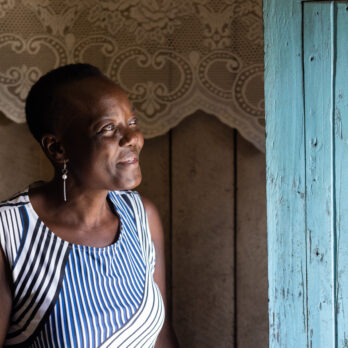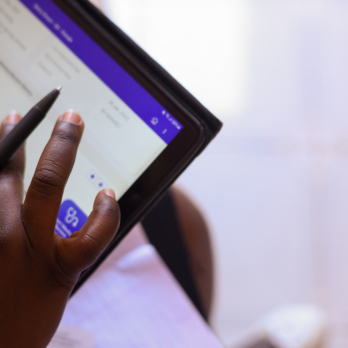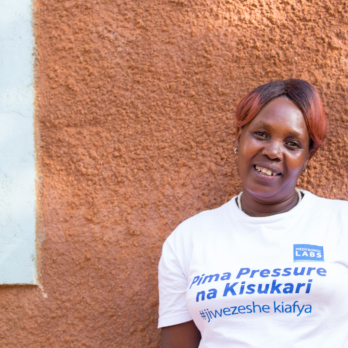For World Hypertension Day, we traveled to Mavinidini Health Center, a remote public care facility south of Nairobi, Kenya in Makeuni County. Here we spoke with Mishi, a hypertensive patient as well as Fatuma and Jonathan, a community health volunteer (CHV) and clinical officer who help screen, enroll, and support patients with hypertension.
Mavindini Health Centre is located in rural Kenya and services the public so many people travel long distances to receive care (click on the link to see a map). Because of its affordable healthcare to the public, it receives high volumes of patients daily. Mavinidini is part of Medtronic LABS Empower Health program, our signature non-communicable disease (NCD) program in Kenya for patients with hypertension and diabetes.
An Interview with Jonathan Ndunda, Clinical Officer, Mavinidini Health Center, Kenya
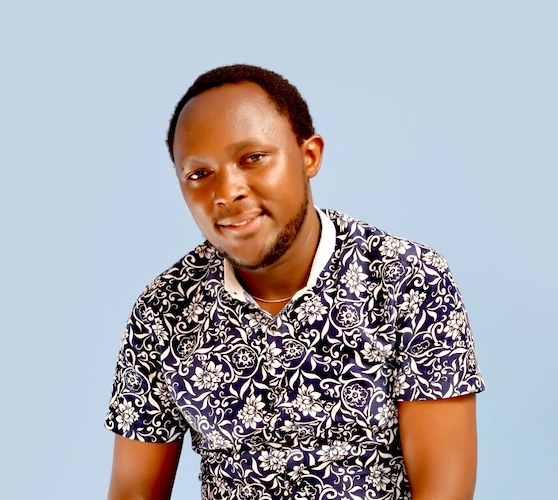
Question: Since Mavindini is a high-volume health center in the county, do you also experience a high volume of hypertensive patients?
Jonathan: Yes, the numbers have been rising recently. This is attributed to increased screening with Medtronic LABS on the ground; we use Medtronic LABS community health volunteers (CHVs) to screen patients for those that can’t come to the hospital and are symptomatic. With enhanced screening, we’ve identified more cases.
Question: When did you start working with Empower Health and how is your experience using the platform to manage patients?
Jonathan: I’ve worked with Empower Health for around a year. With Empower Health we’ve managed to screen more patients than we were doing before. Now, we know how many patients we have since the platform is keeping a record. With CHVs on board, they can screen patients in their community and report to us. Basically, it’s been very helpful.
Question: Are there any patterns you see in whom hypertension affects in Makeuni County?
Jonathan: We screen and enroll more women than men but that doesn’t mean hypertension affects more women than men. This may be happening since not as many men come to the health center as women.
Question: Is there an age bracket that is affected more in this county?
Jonathan: Most of our patients are between 40-60 years.
Question: Do patients follow their personal hypertension treatment and care plans or is it a challenge to keep patients in the program?
Jonathan: Yes, there are some patients in denial and in the past, there has been an inadequacy of healthcare support which caused drop-off, but recently with Empower Health we’ve been able to provide a lot of counseling and education and now patients are ready to learn.
Question: Have you seen improvement in the patients that use Empower Health?
Jonathan: Previously it was hard to track some of the patients, and if they didn’t show up for an appointment, you didn’t know. Now with the system, we can trace patients back to their clinic visits, know which patients need scheduled appointments, and know if they came to their appointment or not. It’s been very helpful.
Question: Do you think more counties will use Empower Health?
Jonathan: Yes, this has made work easy for us health professionals, we can follow up with our patients and obtain patient data – yes this is the way to go.
Mishi Kabithe Kilel, Patient, Makueni County, Kenya
(story told in the words of Mishi)
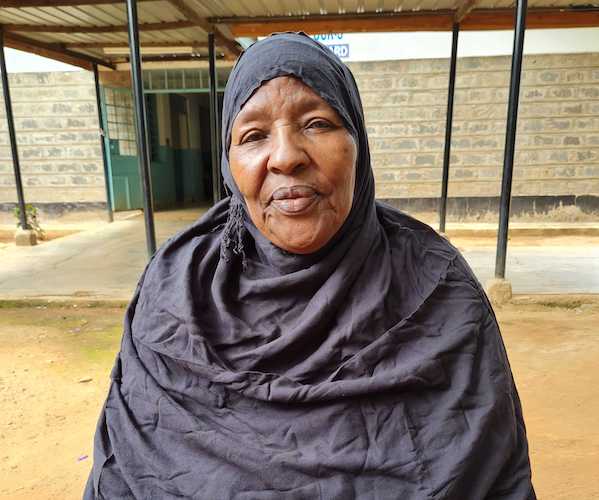
The first time I was diagnosed with hypertension was in 1985, after having six children and I was planning to start family planning pills. I had never had any symptoms or signs that I was hypertensive before then until I started taking the family planning pills and my blood pressure started going up one month after. It started with my heart rate going fast and my ears blocked and immediately I knew I had to go to the hospital. My blood pressure at the time was high and the doctor advised that I should stop taking the family planning pills and monitor the blood pressure for a month before confirming that I was hypertensive.
During that month, my blood pressure was not stable, and it got worse when I became pregnant with my 7th born child. The doctor advised for my well-being and the baby’s, and I had to start on hypertensive medication to help manage the blood pressure and have a safe delivery. Since then, I have been on medication and trying to manage the condition through diet as advised by the community health volunteer and trying to do some exercises to keep the blood pressure low most of the time. The first time I met Fatuma, Community Health Volunteer from Empower Health, she was doing screenings door to door in our village in Shauri Moyo, Makindu Sub-County. Fatuma has been helpful since then, having an accountability partner is what makes this journey easier, and you get to learn how to manage hypertension. She has been advising us on a diet, stress management, and keeping yourself active.
She also organizes community support group activities, and you get to meet other people in the same area who are also battling these conditions. You also share your experiences which have helped me be more positive and engage with Fatuma every so often so that I keep track of my progress. Before meeting Fatuma, I would try and get advice from different people on how to manage hypertension, but this was not sustainable because people had different opinions. Fatuma will advise her patients according to their condition because we later learned just because several people have hypertension doesn’t mean the management is the same, we all have different ways of managing hypertension and diabetes.
Fatuma Mumo Musa, Community Health Volunteer (CHV), Makueni County, Kenya
(story told in the words of Fatuma)
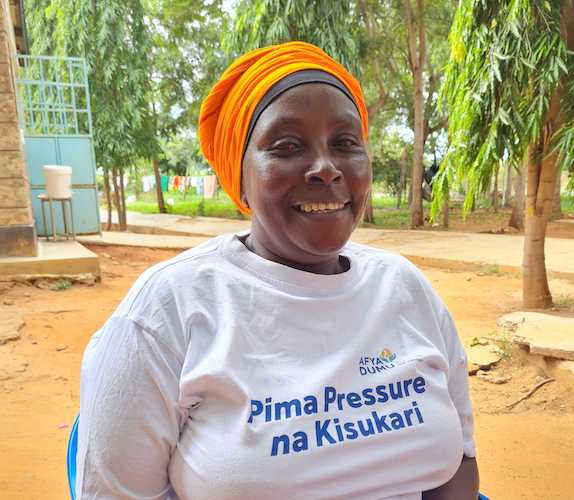
I have been an active trained Community Health Volunteer for 2 years now, before that we were not trained but I would still volunteer to help the people in the community with different conditions. I started my training at Makindu Sub-County Hospital and right after the training that’s when I was enrolled to Empower Health by Medtronic LABS. I was excited to start helping people from an informed point, especially with hypertension and diabetes. The Empower Health team gave us starter kit packs that would enable us to go to patients in the community and do screenings for hypertension and diabetes. Currently, I’m managing 25 homes, which means these are people I visit from time to time to do screenings and patient engagement.
Once we screen the patients, we refer them to the closest facility where they can get further treatment and the healthcare provider will then confirm if the patient is hypertensive or diabetic and enroll them in the Empower Health platform for monitoring.
One of the challenges I have experienced is people living in denial. We have had patients who have been diagnosed with hypertension and diabetes, but they will not adhere to the advice we give them or take medication. To help overcome this challenge, I still visit these patients and monitor them keenly because sometimes when they feel sick, they will take medication and drop it off once they feel better. As a CHV, I try to encourage them and give advice on management but not give up on them. Therefore, getting the training comes in handy so that you can manage these cases better.
One of the benefits I have seen for the patients is convenience. If a patient is feeling sickly, they can call you and do screening and advise them on how to manage the situation. Most of the time they will not need to go to the facility for further assessment because you can advise them on the right diet and encourage them to take medication.
To learn about our Empower Health program in Kenya for hypertension and diabetes, visit our program page.
